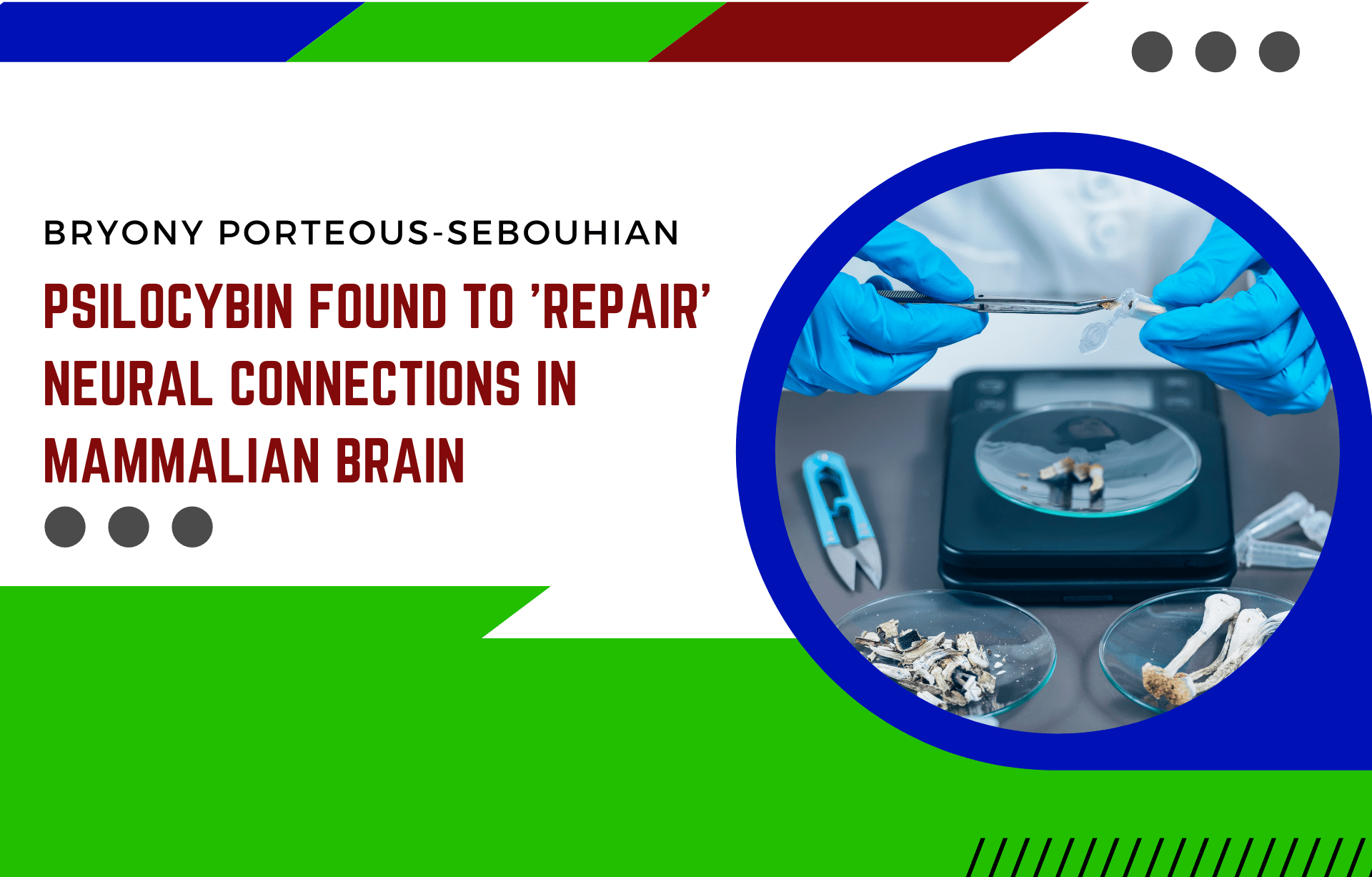
By Bryony Porteous-Sebouhian
In a new study appearing in the journal Neuron, scientists looking into the deeper roots of why psilocybin (magic mushrooms) can provide long lasting therapeutic affects to those suffering from major depression have found that the psychedelic compound can physically repair neural links in the mammalian brain.
In this most recent study, co-authored by Alex C. Kwan and Ling-Xiao Shao who are both associates of Yale University: school of psychiatry and neuroscience and school of medicine respectively, mice were monitored for 24 hours after the administration of psilocybin to document the effects of psilocybin on the architecture of the brain.
To do this, the scientists involved in the study used a laser scanning microscope to produce high resolution images of ‘dendritic spines’.
Dendritic spines are ‘small protrusions in neural dendrites’, a dendrite being the branches you see on images of synapses that look almost branch-like, they are responsible for ‘spreading the message’ so to speak, when they receive electrochemical stimulation from other neural cells.
Amazingly, after just one dose of psilocybin, the brains of the mice showed a significant increase in the number of dendritic spines as well as growing size, all in just 24 hours. Not only this, but these neural improvements were persistent a month later, showing the effects of psilocybin do not have the same efficacy rates of other psychiatric medication.
Another aspect of the study was to monitor how psilocybin could improve the impact of longterm stress responses on the brain and on behaviour. To do this they exposed mice to shortterm stressors. After just one dose of psilocybin, they found that the drug induced behavioural improvements post-stressor and increased activity between neurotransmitters.
In the write up of the study in Neuron, they include a discussion around the possible implications of these findings, especially as it pertains to psilocybin’s therapeutic properties.
The study states, ‘depression is associated with a loss of synapses in the frontal cortex (Holmes et al., 2019). Restoring the number of neuronal connections may correct such deficit, providing a biological mechanism for alleviating symptoms of depression.’
On the claims that psychedelic psychiatric treatment can increase ‘neural plasticity’ the study commented, ‘structural remodelling is integral to learning and facilitates the storage of lifelong memories (Xu et al., 2009; Yang et al., 2009). Psilocybin-induced neural plasticity could prime the brain for integrating new psychological experiences.
The study’s authors believe that the reasoning behind the improvements that psilocybin provides is due to their findings:
Speaking to Yale News, Dr Alex Kwan said, “We not only saw a 10% increase in the number of neuronal connections, but also there were on average about 10% larger, so the connections were stronger as well. It was a real surprise to see such enduring changes from just one dose… These new connections may be the structural changes the brain uses to store new experiences.”
Of course, as with all research into the effects of psychedelics on the brain, our behaviour and our psychology this in a very early stage. So early in fact, they have not been able to move toward human subjects. For many this will raise questions around the validity of the findings.
However, these recent results seem to fill in the gaps and fit the missing pieces in the puzzle of ‘what makes psilocybin so effective as treatment for depression?’